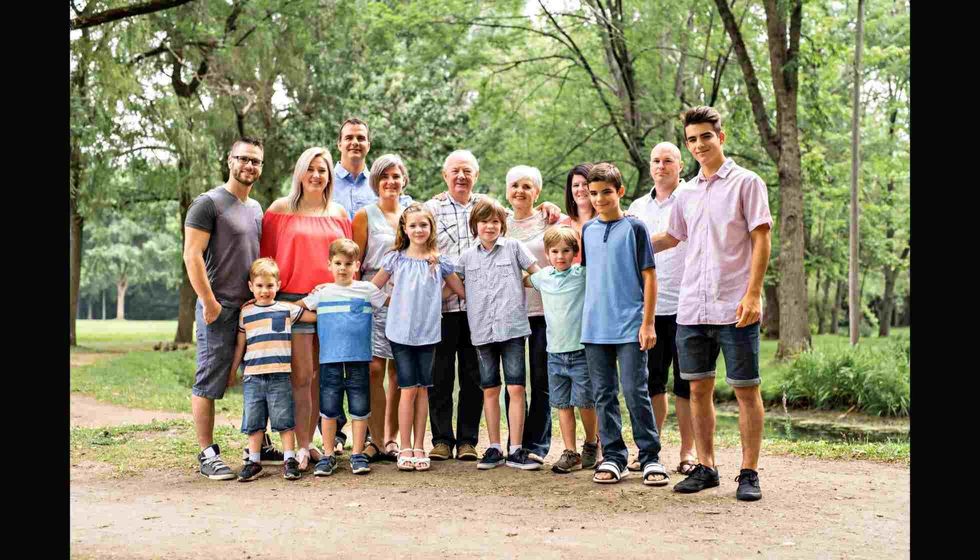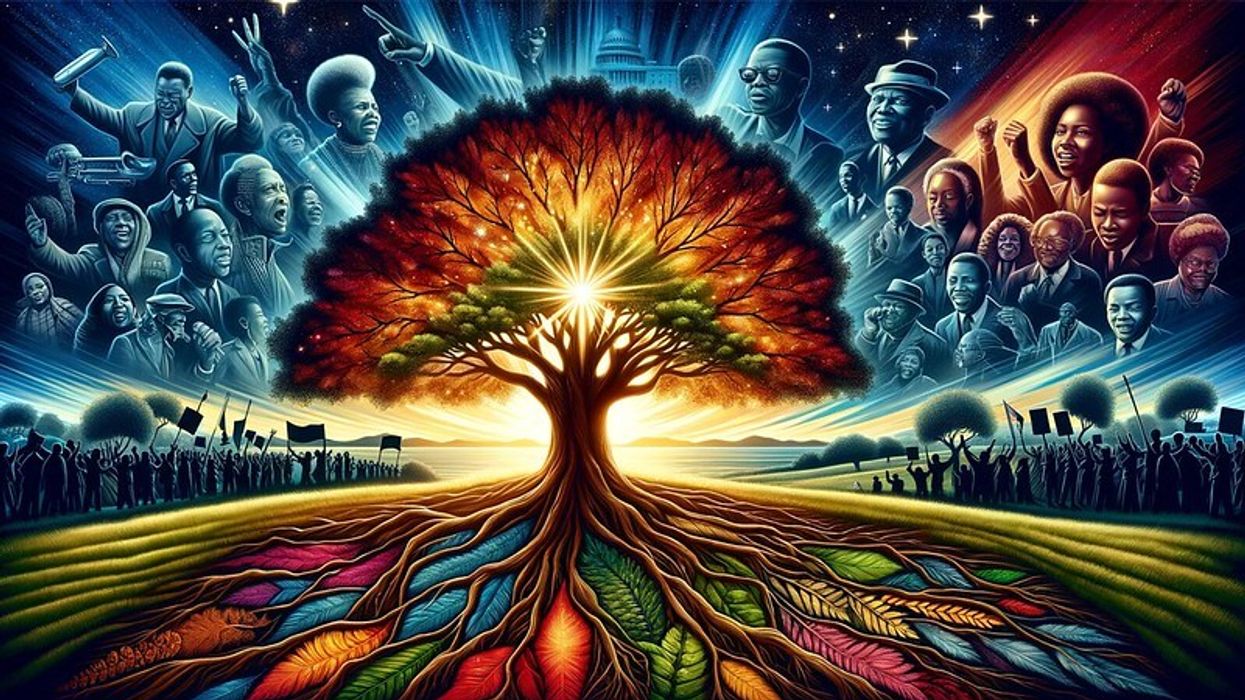Have you ever tried to understand the relationship that you shared with your cousins' kids?
The children of your cousin are described as your first cousin once removed. But your cousin’s child would be a second cousin to your children.
This article discusses straightforward information about first cousins, second cousins, and once removed cousins. In this instance, 'remove' indicates a generational gap. Also, those relationships are counted up and down on your family line first, before moving side to side.
First cousin - One generation up is you. You and your cousin's child have the equivalent grandparents in general.
One more approach to see it is; you and your first cousin each have a parent who is related to each other. When a group of siblings from one family gives a set of siblings from a different family, those family's children are not only the first cousins; they also provide first cousins.
Second cousin - The children of your first cousins and your children are second cousins to each other. They are second cousins since they have similar grandparents.
They are from the same generation as you, but with an appended generation between your cousin's child and your common ancestor. So, your child and your cousin's child are second cousins to each other.
Third cousin - Following similar conditions as second cousins, third cousins will be cousins with two joined generations among yourselves and your connecting ancestors. You and the child of your parent's following cousin are third cousins, and you share no less than one bunch of great incredible grandparents.
A similar explanation can be provided for fourth cousins, fifth cousins, and so on.
With regards to cousins, the relationship prospects are limitless. Your number of grandparents pairs with every generation. Somebody you are related to by marriage, instead of by blood, is not your cousin.
If you are seeking more factual content, you can also check out what are non alphanumeric characters and what animals mate for life.
What do I call my cousins child?
They are definitely not your subsequent siblings. In the family tree, the offspring of your cousin is called your first cousin once removed. Be that as it may, your cousin's children would be second cousins or first cousins to your kids.
All in all, what do you call your cousin's daughter or your cousin's son?
From the angle of family history, your cousin's child is your first cousin once removed, yet the normal name of your sibling's children to call them by is your niece or nephew. They would call you aunt or uncle, and your kids might essentially call them cousins.
Even though obviously, they are truly second cousins. A nephew is the male child of your sibling and a niece is the female child of your sibling.
Uncle and aunt are the relatives (brothers and sisters) of your parents. It is also related to their spouses. You don't need any blood relationships to be a full-fledged uncle or aunt. Your mother's and sister's husband, not uncle-in-law only because he is not related to you by relations. He's only your uncle.
While numerous Asian and European societies have explicit names for far-off cousins the English language doesn't. This is anything but a social differentiation in the United States all things considered.
Countless families take on their names dependent on family custom, or essentially who is the most established, as opposed to on ancestry precision. That is the reason 'Aunt Sally' might be your first cousin once removed. Age steers clear of it; everything is in regards to generational layers.
Some individuals are exceptionally close to their cousins and think of them as more like kin. For this situation, it will not appear to be weird to allude to their kids as your niece or nephew.
Notwithstanding, if you don't see your cousins (siblings) frequently or didn't grow up, it probably will be unusual to call them something ordinarily saved for your kin's kids.
What does first cousin mean?
First cousins generally share a great grandparent. The child of your parent's siblings (uncle or aunt) is accordingly your first cousin.
If first cousins have a child, that child is your first cousin once removed. 'Removed' alludes to a distinction in the generation between you and your first cousins.
You can likewise imagine it comparative with that general order of precursors. Assuming that siblings once removed have a youngster, that child is your first cousin twice removed because they are two generations eliminated from you and your first cousin.
This 'removed' business is frequently mistaken for marking a second or third cousin, which is erroneous. A cousin of any degree will regularly belong to matching generations as you.
What does second cousin mean?

Second cousins imply that the nearest common ancestor is a grandparent. Third cousins, then, at that point, have a great grandparent as their common ancestor. That gives the 'degree' second cousins.
In a family tree, the second cousin shares a great grandparent, either maternal or paternal. You and your cousin's child have similar great grandparents, yet not similar grandparents.
Seeing the second cousin is similar to seeing the first cousins. On the off chance that individuals from your parents were taken on, your subsequent cousin may not be blood identified with you.
Assuming you need to determine relationships between two individuals in your genealogical record, you can outline out their relationship from the common ancestor and see where they are. In case you're all the more numerically lean, there is a recipe you can utilize.
The level of siblings (first cousin, second cousin, third cousin, and so on) does not change between generations. However, the word removed is utilized to flag an alternate generation.
Your first cousin Sue is likewise a first cousin to your youngster, yet is taken out by generations, making Sue your kid's first cousin once removed. Furthermore, Sue's children are your cousins once removed.
Your children and Sue's children are the second cousins; to your grandchildren, Sue's children are second cousins once removed.
The children of a second would be third and they would share one bunch of great grandparents once more, similarly share great grandparent of you and Sue. The children of those third cousins would then be fourth cousins, and so on.
More Extended Family Relations Explained
A more extended family can incorporate a wide cluster of relationships. There can be genealogical associations between affinal relations.
Extended families comprise few generations of individuals and include natural guardians and their cousin's child just as a parent in law, great grandparents, aunt, uncle, and cousin. Family is commonplace in aggregate societies where all relatives are reliant and share family liabilities includ childrearing duty.
The more distant family doesn't live in a similar dwelling, yet typically the individuals live near one another and work in groups. The literature points to many protective factors and features associated with extended families, which can help the parent and family meet the children's needs.
Extended families usually have more assets at their disposal utilization to ensure the well-being of the children.
Keeping certain relations among children and their extended related members should be supported and sustained. Furthermore, when the family gatherings as a collaborative team, has strong connection bonds, is adjustable in its roles, and relies on cultural values to support the family, a family serves itself as a lifelong defense upon stressful changes.
A family tree builds from a branch, you are supposed to share ancestry with them, from either side of your parent's family, mother's or father's, beginning with grandparents, parents, aunts and uncles, brothers and sisters, cousins, and so on.
There can be several advantages to staying in an extended family but, there can also be many problems. Among the privileges of the extended family is many more adults available to help raise the children.
It takes a lot of stress for the parent to be the only role model and source of obedience at residence. Grandparents are also the great cause of knowledge for their grandchildren about the past.
It is significant at a time when innovation is continually happening in the world. Grandparents connect to that history which is part of family knowledge, story, and ways of life through a different time.
For instance, youthful guardians or couples can encounter the presence of family members as meddlesome. All in all, limits become a lot greater issue in a more distant family when contrasted with an atomic one. Multiple generations living under one roof can create trial grounds.
For example, your young parent can feel the closeness of relatives as rude. In other words, when people have varying opinions and styles about how things get done. It's the old story of the conflict between the generations.
Here at Kidadl, we have carefully created lots of interesting family-friendly facts for everyone to enjoy! If you liked our suggestions for what are my cousins' kids to me then, why not take a look at things that are purple, or what are orbeez made of?









